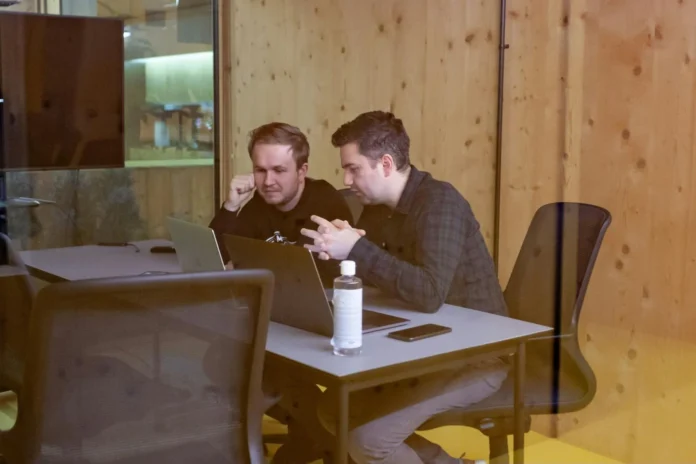9 Approaches to Mentorship in Startup Environments
Mentorship plays a pivotal role in shaping the success of startups, fostering both individual and team growth in high-pressure environments. In this expert roundup, nine seasoned leaders—including a CTO and a founder—share actionable strategies that elevate mentorship beyond mere guidance. From empowering interns through hands-on experience to cultivating open communication and collaborative learning, these insights highlight the dual benefits mentorship offers to both mentors and mentees. Dive into these valuable lessons to discover how structured mentorship can drive innovation and success in any startup setting.
- Interns Gain Practical Experience Through PY Program
- Hands-On Projects Enhance Mentorship
- Reaching Out to Mentors Transforms Learning
- Shadowing and Hands-On Mentorship at TrackingMore
- Rotational Mentorship System Promotes Growth
- Goal-Oriented Mentorship Focuses on Achieving
- Structured Program Emphasizes Mutual Growth
- Mentorship Encourages Innovation and Creativity
- Open Communication and Collaborative Learning at Carepatron
Interns Gain Practical Experience Through PY Program
When I was first building my startup, we brought on a couple of interns from the Professional Year (PY) program, which is popular in Australia. For those who aren’t familiar, PY is a formal program designed for international students or recent grads. It helps them gain practical work experience, build industry-specific skills, and improve employability, especially in a new country. The program usually combines professional development, training, and work placements.
We took on a few software development interns who already had bachelor’s degrees and some internship or coursework experience. The nice thing about the PY program is that it’s pretty structured, so the interns came in already having a solid foundation. We assigned them to a senior developer who acted as their mentor. The induction and training process was fairly smooth since they were all eager and focused, partly because the program is graded—so they had skin in the game.
One of the things that worked really well for us was how it benefited both the mentors and the mentees. The interns were motivated and came with fresh perspectives, while the mentors gained satisfaction from helping mold the next generation of talent. It wasn’t just about giving them tasks, it was about explaining how the tasks fit into the bigger picture of a real-world project, guiding them through problem-solving, and encouraging them to develop soft skills like communication and teamwork. It was the perfect environment to grow their skill set while working on live projects, which ultimately helped them land full-time roles once they graduated. It was a win-win all around.
 Ajay Chavda
Ajay Chavda
CTO, Mojo Dojo
Hands-On Projects Enhance Mentorship
In our startup, we’ve taken a hands-on, project-based approach to mentorship that’s rewarding for mentors and mentees. We pair each mentee with a mentor on real-time projects where they can immediately apply what they’re learning. This way, mentees gain practical experience while mentors stay refreshed on emerging ideas and get valuable support in completing tasks. We’ve found that this collaborative setup accelerates skill-building and strengthens our team’s relationships, creating a culture of mutual growth and shared success.
 Kristin Marquet
Kristin Marquet
Founder & Creative Director, Marquet Media
Reaching Out to Mentors Transforms Learning
I recently started my own business in a field I am learning more about every day. While you can learn a lot online, this content often gets condensed and generalized in a digital format. What’s more, most of it is hidden behind a paywall.
What I have found to be most transformational in my learning is working with mentors and people who have already been successful. If I am interested in learning more about someone’s business or really like what they are doing, I’ll reach out. Many people are willing to chat and provide advice. I think this is great for building initial relationships and maintaining connections, and I also usually learn a lot from those sessions.
Sometimes, I end up doing work for these mentors. This is a great learning experience for me, and it also helps them to continue to grow. In this way, we both benefit from the experience. Reaching out to people I admire has completely changed my life, and I highly recommend that anyone looking to develop personally or professionally consider doing so.
 Olivia Chiavegato
Olivia Chiavegato
Founder, CMO, Head Writer, The Vitallist
Shadowing and Hands-On Mentorship at TrackingMore
Our approach to mentorship is through shadowing and hands-on mentorship. We have designed this program so that mentees can observe in real time what mentors do, how they approach different challenges in their work, and the frameworks they apply to resolve them. Additionally, they also get to take part in meetings to understand how mentors make decisions and get a chance to co-lead some projects.
The number one benefit of this mentorship approach is that mentees are exposed to the real world of what they are being mentored to do. That exposure enables them to learn faster and innovate new ways to tackle different challenges. Mentors, on the other hand, can refine their explanations to help the mentees understand better. This approach is also time-saving as normal company operations continue during the mentorship process.
 Clooney Wang
Clooney Wang
CEO, TrackingMore
Rotational Mentorship System Promotes Growth
In a startup company, the rotational mentorship system is an effective management approach that can promote employee growth and enhance team collaboration. Under this system, our employees can gain a profound understanding of the company’s technologies and products and cultivate cross-disciplinary collaboration capabilities to ensure a high-quality service experience for users.
When implementing the rotational mentorship system, it is necessary to set clear cycles and goals first. Usually, each rotation period lasts for one to three months. During this period, mentees will be deeply involved in specific departments’ daily work and work with their mentors to formulate learning goals. For example, mentees can learn in the product department about how user feedback influences the iteration of features; they can also study in the marketing department how to transform technological achievements into user growth strategies.
Such diverse experiences help mentees comprehensively understand the coordinated operation among different departments of the company.
After each rotation cycle, we will arrange regular review and summary meetings. In this part, mentees and mentors will jointly review the growth and gains of the mentees during the cycle and set more specific goals for the next stage of learning.
 Eve Bai
Eve Bai
International Partnerships and Operations Manager, StudyX.AI
Goal-Oriented Mentorship Focuses on Achieving
In our startup, we’ve adopted a strategy we call “Goal-oriented Mentorship.” Here, mentors and mentees jointly define small-term goals that align with our company’s vision. This unique method has shifted the focus from “teaching” to “achieving” where everyone learns through the process of reaching the pre-set goals. This approach not only intensifies the learning curve for the mentees but also for the mentors who gain new insights while striving for success, resulting in a win-win scenario for everyone.
 Abid Salahi
Abid Salahi
Co-Founder & CEO, FinlyWealth
Structured Program Emphasizes Mutual Growth
An effective approach to mentorship in a startup involves creating a structured yet flexible program that emphasizes mutual growth for both mentors and mentees. This can be achieved by defining clear goals and expectations at the outset, ensuring that both parties understand what they hope to achieve from the relationship. Utilizing SMART goals—specific, measurable, achievable, relevant, and time-bound—helps maintain focus and accountability.
Regular check-ins are vital for fostering communication and trust. Scheduling consistent meetings allows mentors to provide timely feedback and guidance while giving mentees the opportunity to share their progress and challenges. Incorporating technology, such as project management tools, can facilitate real-time updates and organization.
Additionally, encouraging a culture of open dialogue fosters a safe environment for sharing ideas and challenges. Mentors should balance guiding with allowing mentees the autonomy to explore solutions independently, promoting confidence and innovation. This collaborative atmosphere not only enhances learning but also strengthens the mentor-mentee relationship, benefiting both parties in their professional journeys.
 Sheraz Ali
Sheraz Ali
Founder & CEO, HARO Links Builder
Mentorship Encourages Innovation and Creativity
Personally, I believe a mentorship that focuses on innovation and creativity has made a real difference for us. We encourage mentors and mentees to brainstorm and tackle challenges together, which keeps things engaging and forward-looking. This approach not only benefits their personal growth but also fuels our startup with new ideas. It’s been a truly rewarding setup for both mentors and mentees.
 Ambrosio Arizu
Ambrosio Arizu
Co-Founder & Managing Partner, Argoz Consultants
Open Communication and Collaborative Learning at Carepatron
Open communication and collaborative learning are foundational to our culture. We create spaces where every team member, regardless of role or experience level, can share insights, ask questions, and support one another. We intentionally keep our structure non-hierarchical when it comes to knowledge-sharing, which means that anyone can reach out for one-on-one sessions or project discussions, whether it’s for feedback, mentorship, or even a casual check-in. This open, horizontal approach allows team members to engage directly with each other, fostering trust and a shared sense of purpose.
We also believe in the importance of continuous learning and personal growth. Team members are encouraged to expand their skills and take on new challenges as their interests evolve. By creating an environment where they feel comfortable stepping into new roles and exploring different aspects of their work, we ensure that personal development is integrated into our work culture.
 Jamie Frew
Jamie Frew
CEO, Carepatron
Submit Your Answer
Would you like to submit an alternate answer to the question, “Can you describe an approach to mentorship in your startup that has proven beneficial for both mentors and mentees?”

